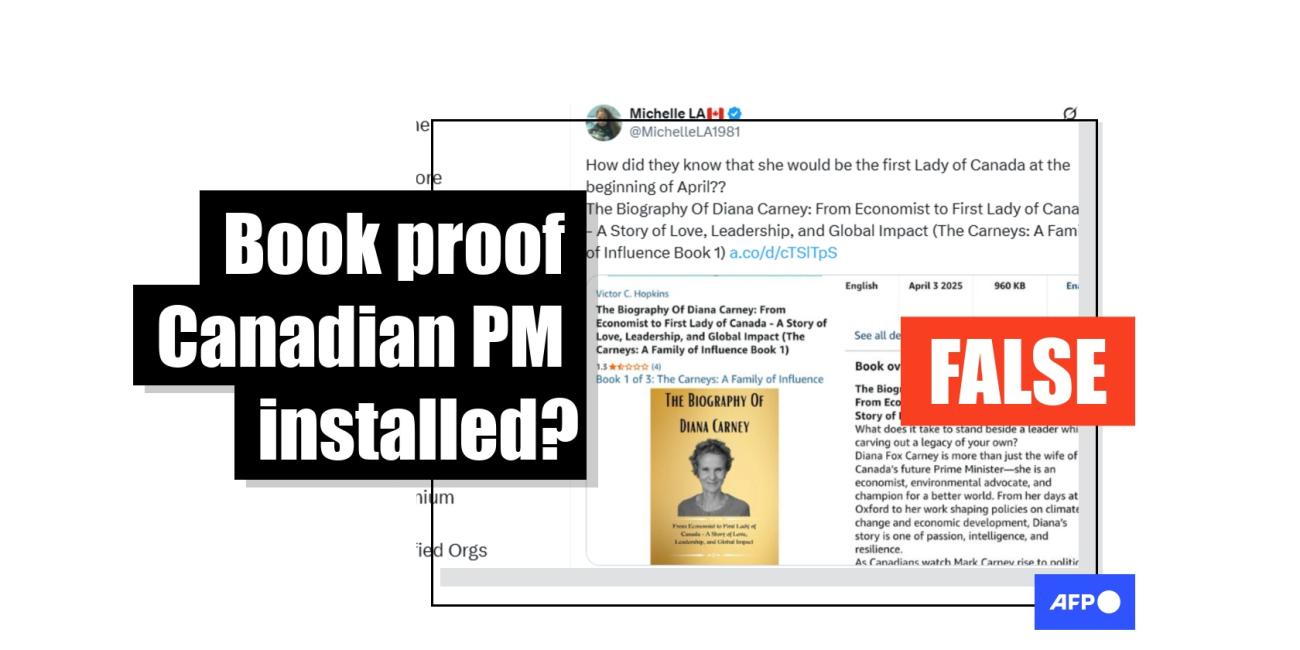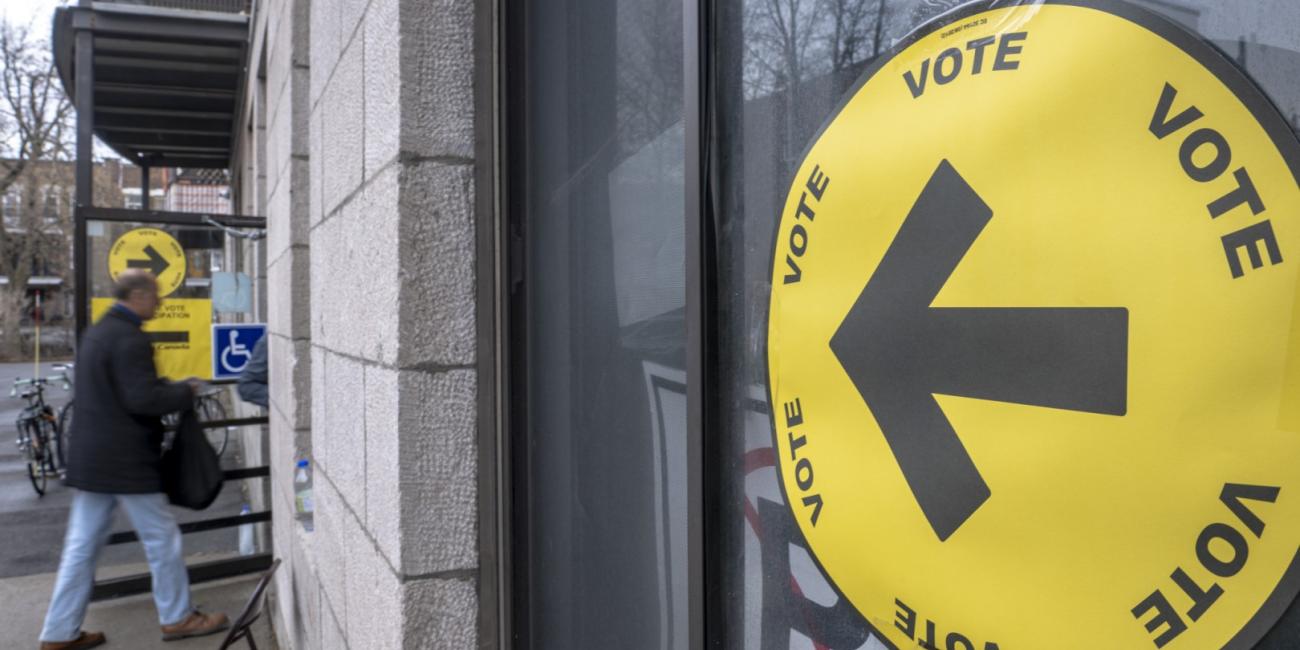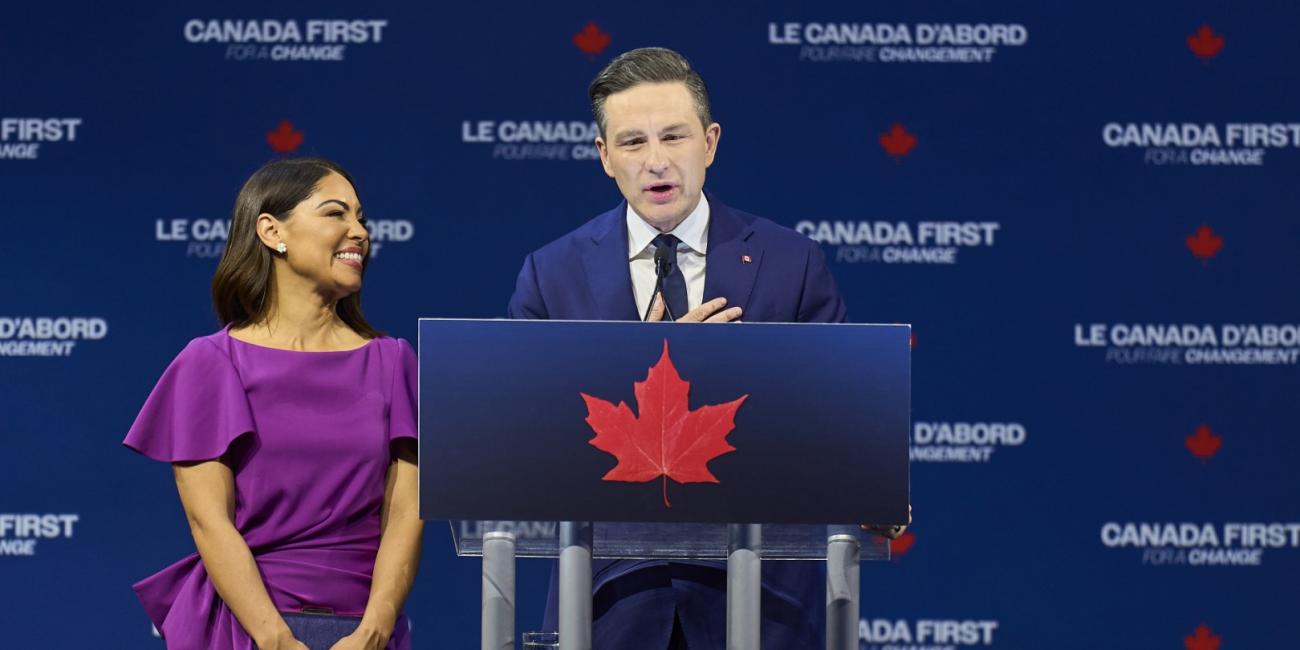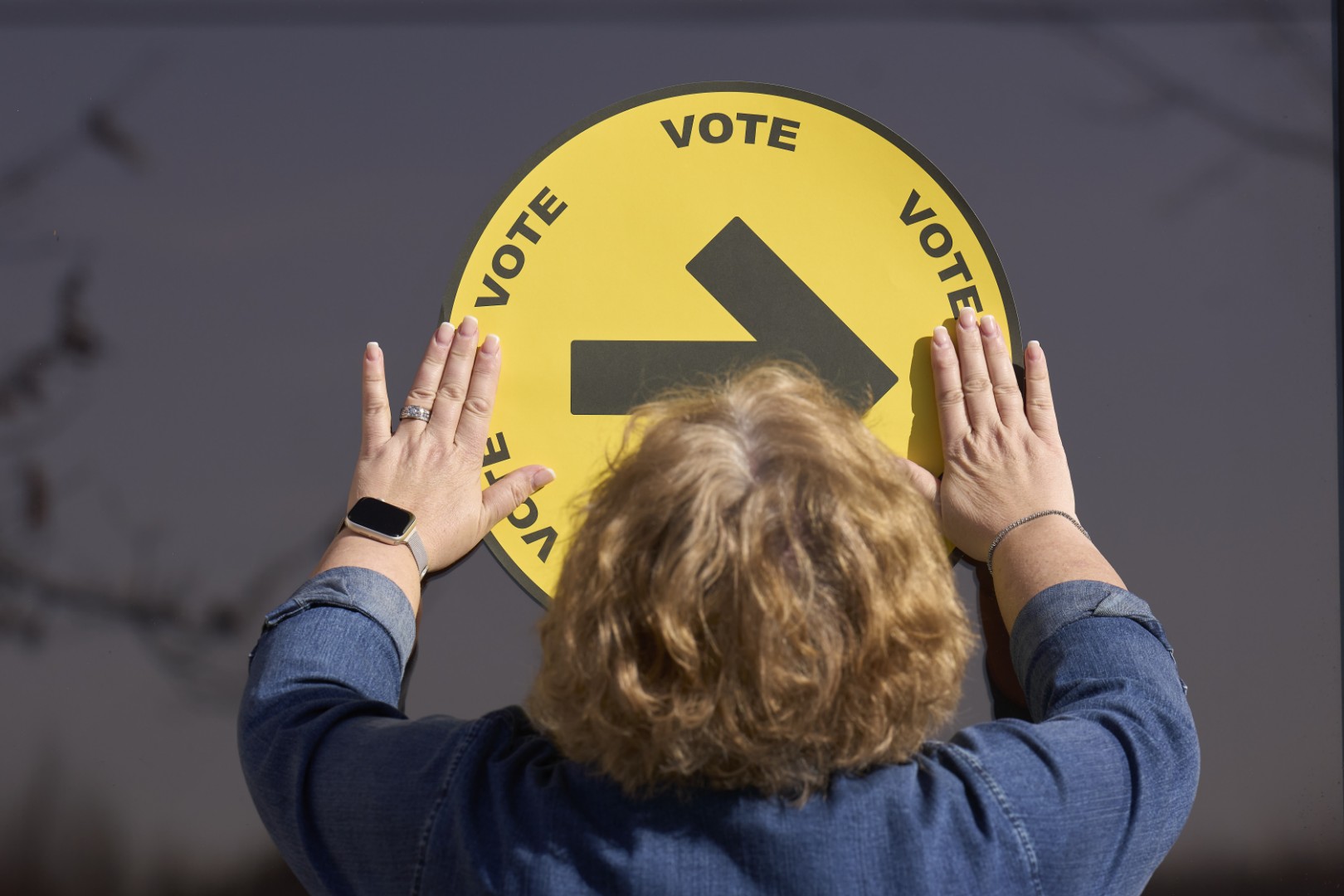
Canadian election count independent of media projection calls
- Published on May 2, 2025 at 23:12
- Updated on May 12, 2025 at 17:42
- 4 min read
- By Gwen Roley, AFP Canada
"Mainstream media election fraud?" reads text over an April 29, 2025 Instagram video.

In the clip, a man identifying himself as an election worker for the April 28 federal contest expresses disbelief that the CTV News channel called the race before his location began counting its ballots.
Different versions of the video spread across Instagram, Facebook and X, with captions implying that the man's comments had thrown Canada's election results in doubt.

Keyword searches revealed that Chris McKee, a broadcaster from Ontario province, is the man in the video. He originally posted it to X on election night.
After the footage attracted hundreds of thousands of views, Jim Ferguson, a former candidate for the Brexit Party in the United Kingdom who has previously spread other misinformation, posted an interview with McKee on X and claimed that "the result was pre-decided."
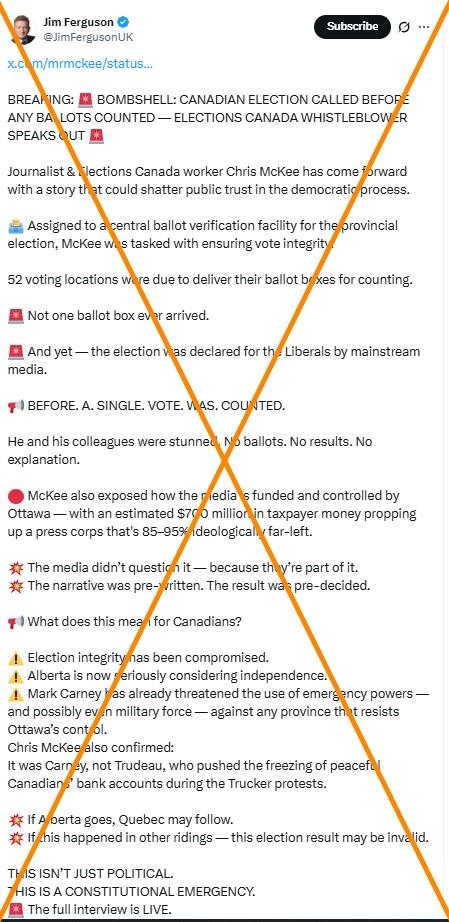
The incumbent Liberal Party won the most seats in Canada's election, capping off a campaign that saw the opposition Conservatives lose over a year of polling momentum as former prime minister Justin Trudeau resigned, while US President Donald Trump sparked a trade war and repeatedly threatened Canadian sovereignty.
Two of the country's largest broadcasters, CTV and the Canadian Broadcasting Corporation (CBC), issued calls projecting a Liberal win shortly after the final polls closed in British Columbia and the Northwest Territories (archived here and here).
That does not mean the outcome was predetermined, however.
Matthew McKenna, a spokesman for Elections Canada, said the non-partisan agency continues to count votes until all polling locations have reported.
"The calls that the media make have no impact on our counting and reporting processes," he told AFP in an email April 30.
In a May 1 interview with AFP, McKee said he posted the video out of frustration with the media's election coverage, saying he found it "not ethical" to make a call before all the tallying was completed.
"I don't want to question the integrity of Elections Canada," he said.
Media coverage of elections
Janice Neil, an associate professor in the School of Journalism at Toronto Metropolitan University, said that the high public interest in elections drives the decision desks at news organizations to try to make calls as early as possible (archived here).
She said they project a winner before vote counting wraps up by following Elections Canada's live reporting and determining when other outcomes become almost statistically impossible.
"They have very sophisticated modeling that looks at vote share, have seats changed, what's happening in any region."
CTV News told AFP in a May 1 statement that it does not make an election call until this statistical analysis has occurred, and that its methodology had proven accurate in the last 15 federal elections (archived here).
CBC explained in a video on its website that it takes a similar approach, assessing incoming results against previous data to make a projection, usually on election night (archived here).
Projections not final
Holly Ann Garnett, an associate professor of political science at the Royal Military College of Canada, said that while media outlets often make their calls early, those projections can still change as Elections Canada continues to count ballots (archived here).
"That's why many candidates will be very cautious about when they decide to concede because if not all the polls are reporting no one knows for sure," said Garnett, who is also the co-director of the Electoral Integrity Project (archived here).
Conservative leader Pierre Poilievre did not make a speech until several hours after the media projected his party had lost. Carney took the stage even later (archived here).
CTV projected the Liberals would form a minority government the night of the election (archived here). CBC waited for more polling locations to report before making the same call the following afternoon (archived here).
Elections Canada has wrapped up its preliminary count, with the Liberals remaining on top (archived here).
According to its website, Elections Canada reviews the information from each polling station before officially validating election results, a process that typically takes no more than a week (archived here). The agency found that a tight race in the Ontario riding of Milton East-Halton Hills South, which media initially called for the Conservatives, had actually been won by the Liberals (archived here and here).
Ridings within a certain margin of victory automatically qualify for a judicial recount after validation (archived here and here). The Quebec riding of Terrebonne, which flipped once from the Liberals to the Bloc Quebecois between the preliminary count and validation, returned to the Liberals after a judicial recount finding the party had won by just one vote (archived here and here). As Elections Canada released this information, the media reported on how seats flipped.
Read more of AFP's reporting on misinformation during the Canadian election here.
This story was updated to add details about the validated results and automatic judicial recounts.May 12, 2025 This story was updated to add details about the validated results and automatic judicial recounts.
Copyright © AFP 2017-2026. Any commercial use of this content requires a subscription. Click here to find out more.
Is there content that you would like AFP to fact-check? Get in touch.
Contact us
